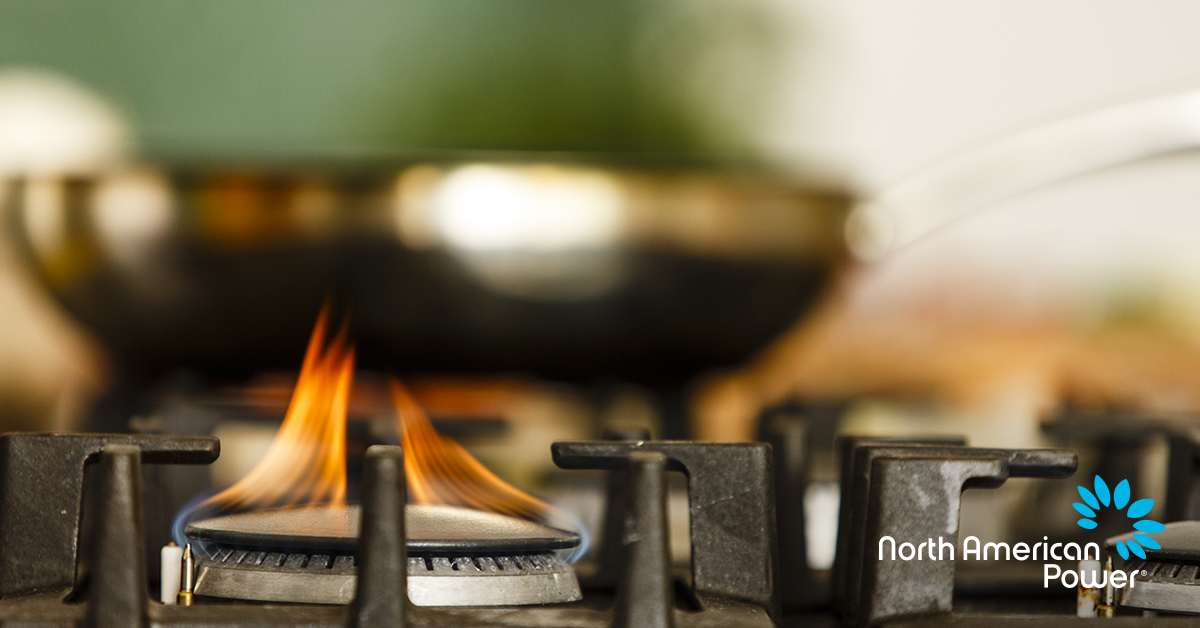
Natural gas is a clean and dependable resource that many families rely on for cooking their food and heating their water and homes. It can also present a significant safety hazard, so it is very important to understand the signs of danger and what to do if you suspect a gas leak, so you can keep your family and your home safe.
Recognize the Signs of a Natural Gas Leak
Your biggest tool for keeping yourself and your family safe will be your ability to recognize the signs of danger. Be aware of the following signs of a natural gas leak:
- Pay attention to what you smell. Natural gas does not have a noticeable smell, so a distinctive sulfuric odor is added in order to detect a leak. If you notice a strong rotten egg-like odor, this can be a sign of a natural gas leak.
- Pay attention to what you see. We don’t usually look at the inner-workings of our appliances when we use them; we just trust them to work when we need them to. However, it is always a good idea to check for signs of a leak in the gas lines running in and out of your natural gas appliances. Signs of an outdoor natural gas leak may include bubbling water in a creek or pond and dead spots in otherwise thriving vegetation.
- Pay attention to what you hear. Whistling, hissing, and sometimes even roaring sounds can be heard from natural gas appliances as well as underground gas lines, and are a cause for concern.
What to Do if You Suspect a Natural Gas Leak
If you suspect a natural gas leak, it is imperative that you act immediately to get yourself and your family to safety. Once you’ve determined there could be a gas leak, immediately:
- Alert everyone in the vicinity and leave immediately. If you are outdoors, go somewhere upwind of the suspected leak.
- Refrain from using anything which could provide an ignition. This includes obvious items like lighters and matches, but also includes less obvious items such as light switches, flashlights, and even cell phones. Do not use ANY of these items until you are safely away from the danger.
- Once you are at a safe distance away, call 9-1-1 and alert your local gas company. Don’t use your car to leave – the ignition could set off the gas!
Being able to recognize the signs of danger and being vigilant enough to watch for them are imperative for homes that use natural gas. Make sure you understand the signs of a natural gas leak and what to do if you suspect one, so that you can keep yourself, your family, and your home safe.
Sources:
- http://www.safegas.org/about/about.html
- http://www.fireengineering.com/articles/2009/05/hazmat-survival-tips-surviving-a-response-to-a-leak-of-natural-gas.html
Most Viewed Pages
- Where does your Power come from?
- How Much Heat Does a Lamp or a Light Bulb Give Off?
- Your Summer Survival Guide: Reduce Energy and Prepare for Hurricanes
- This or That Thursday: Coffee Maker, or Toaster?
- What You Ought to Know About Kilowatt Hours - kWh Explained
- Fall Energy Saving Tips!
- Cutting Costs Around the House
- 6 Tips for Finding an Energy Efficient Home
- The Four Best Things You Can do to Cut Energy Use in your Home
- 4 Ways to Improve Air Conditioner Efficiency











